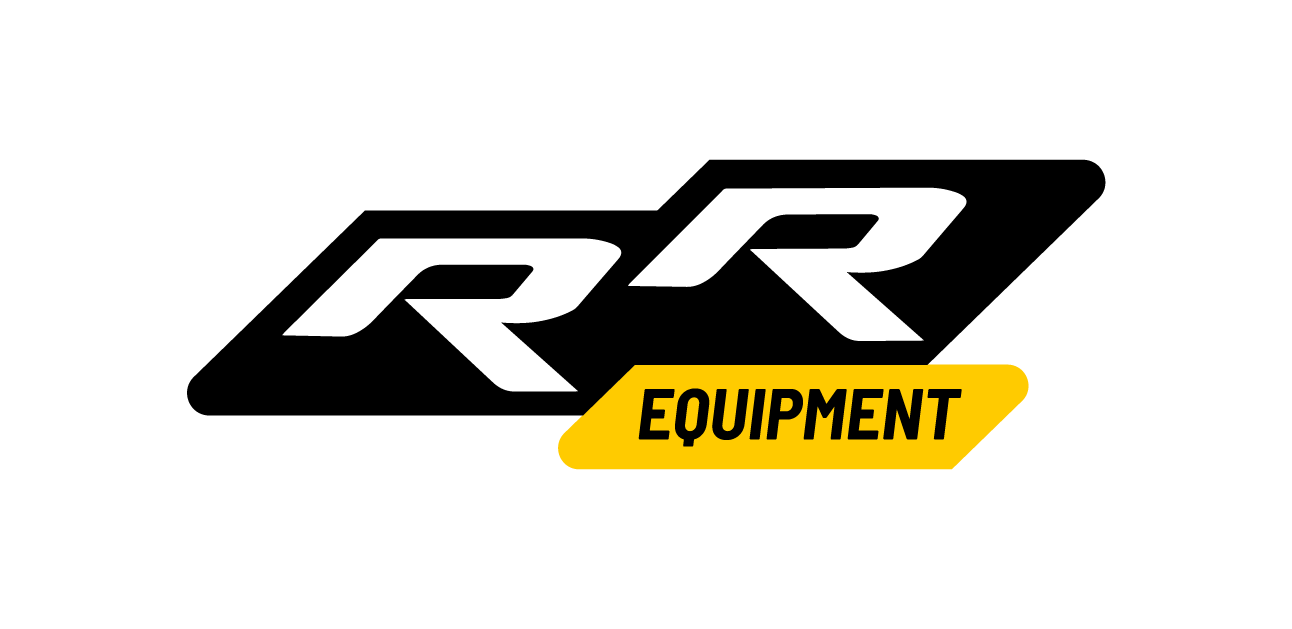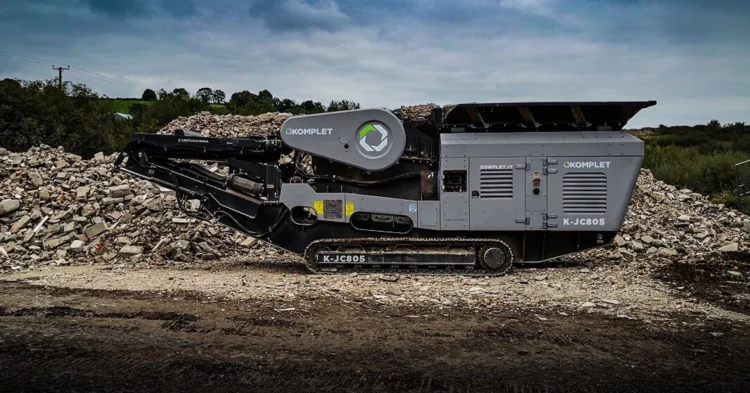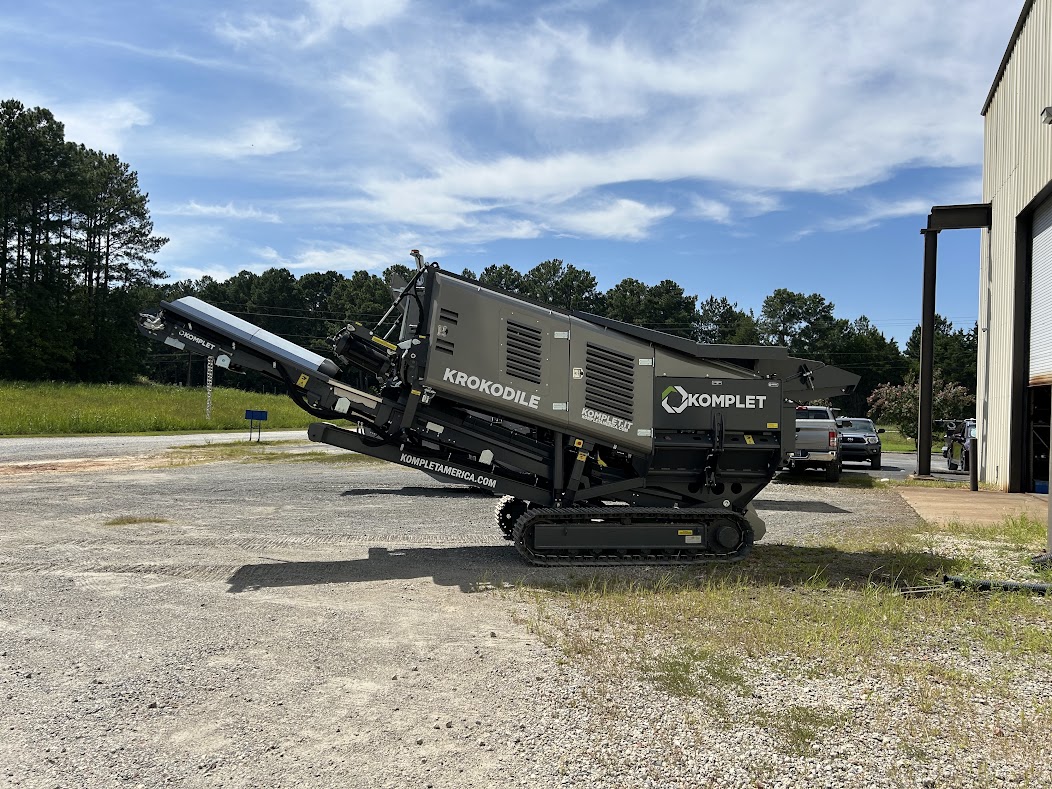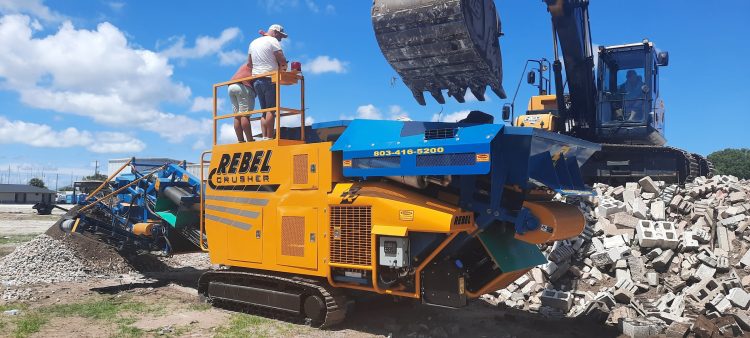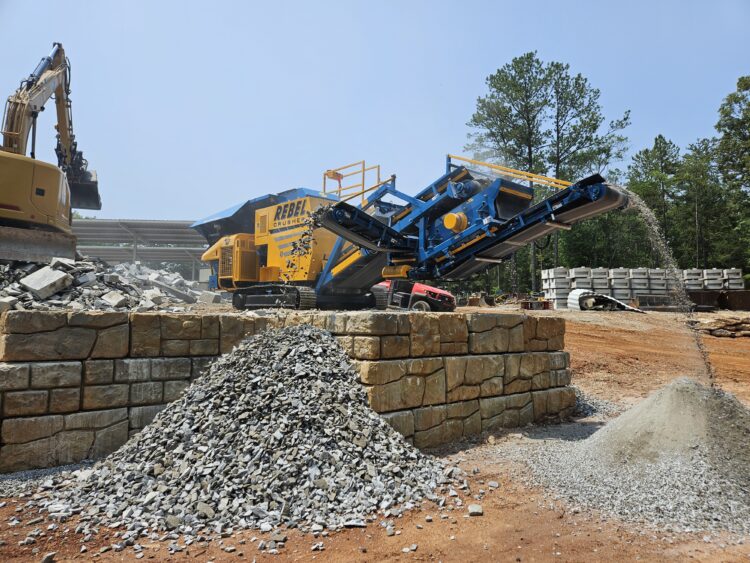Used for reducing large rocks and boulders into smaller rocks, gravel, or dust, crushers are essential in industries like construction, mining, and waste management. Each crusher type serves a unique purpose depending on the material and desired output.
This guide explores five common crusher types – Jaw, Impact, Hammermill, Cone, and Shredders – and provides insights into their uses and selection considerations.
Understanding Waste Types and Crushing Challenge
When it comes to industrial crushing, matching the right crusher to material type isn’t just a technical decision – it’s essential for maximizing efficiency and cost-effectiveness. Using the wrong crusher for your material type can lead to underperformance, increases wear on equipment, and high maintenance costs.
Understanding your waste material types and crushing needs will ensure you select the right crusher equipment and maximize performance.
Matching Crushers to Waste Types
Knowing the strengths of each crusher type ensures proper selection for specific materials. Let’s dive into the five crusher types and their ideal applications.
Jaw Crusher
Jaw crushers use compression force to break large materials into smaller pieces. Two crushing jaws, one fixed and another moving, create a V-shaped crushing chamber. The moving jaw compresses the material against the fixed jaw, breaking the material up.
Jaw crushers are the most popular and versatile crusher. However, jaw crushers are best used with hard, abrasive materials like rocks and minerals concrete with rebar or wire, harder asphalt, bricks, blocks, glass, granite countertops, ceramics, etc.
Impact Crusher
Impact crushers use impact force to break materials into smaller pieces. This type of crusher is great for medium-sized reduction. Due to its high reduction rate, impact crushers can be used as primary or secondary crushers, depending on the type of material being crushed.
Impact crushers are ideal for softer, less abrasive materials, such as recycled concrete and asphalt. This type of machine can reduce large rocks into smaller, grain-size material.
Cone Crusher
Cone crushers employ a conical shape and powerful crushing force to reduce material. Designed for secondary and tertiary crushing of hard materials, cone crushers are excellent for high-production needs especially when following a jaw crusher.
Shredders
Shredders break down bulky waste into manageable sizes using shearing or shredding mechanisms.
This type of machine is typically used for recycling purposes and works well for materials like wood, stumps, demolition debris, C&D waste, concrete slabs, tires, light tin, plastic, metal, and e-waste.
Considerations for Choosing the Right Crusher
Making the right choice when selecting a crusher avoids operational inefficiencies and reduces long-term costs. Before choosing a crusher, there are several factors to consider.
Material Type and Hardness
Knowing the material you plan to use will help inform your crusher selection. Hard, abrasive materials require rugged equipment, while softer materials may benefit from gentler crushers.
Desired Output Size
Differing crushers produce varying output sizes. For instance, a jaw crusher produces a coarser output, while a cone crusher can achieve a finer output.
It’s crucial to select the right crushing machinery for your project’s goals. Failing to match the right crusher to your needs will result in inefficiencies, setbacks, and higher operational costs.
Gradation
Various crusher types can produce varying gradation. Simply put, gradation refers to the percentages of various sizes. Jaw crushers tend to produce a courser blend with less powder and fines.
Impact crushers explode material and tend to produce more powder and fines. Knowing what maximum and minimum sizes are required as well as the gradation will allow one to properly select the right style of crusher.
Real-World Examples: Crusher Applications Across Industries
As mentioned, different crusher types are utilized in various scenarios. Let’s dive into a few real-world examples of crushers being used across industries.
Recycling Industry
The recycling industry relies heavily on crushers to transform waste and recyclable materials into reuseable resources. Jaw crushers, Impact crushers and shredders excel in handling recycled materials.
When construction sites are demolished, concrete walls, brick, and asphalt are removed, creating a mix of debris. Instead of sending the mixed material to a landfill, the debris can be processed on site with a jaw crusher, impact crusher or shredder. The final product is a reusable aggregate that can be used for future construction projects or concrete production.
Not only do crushers provide an efficient and sustainable way to manage waste, they reduce disposal costs through on-site crushing.
Mining Operations
The mining industry uses crushers to break down ore and rock into manageable sizes for further processing.
Essential for mineral extraction, jaw and cone crushers are used for mining operations. Jaw crushers are used for the initial size reduction, breaking down large boulders and ore chunks. Cone crushers act as a secondary crusher, refining the material to meet specific size requirements. With uniform particles, grinding efficiency is improved, allowing mils to process more ore in less time.
Selecting the Right Crusher for Your Needs
Choosing the right crusher is important for achieving maximum efficiency and cost-effectiveness. Each crusher type has its specific role, tailored to material types and project goals.
When choosing a crusher, consider material type, desired output, and industry specific needs to ensure optimal performance. By aligning your choice with these factors, you will achieve the best results for your operations.
To learn more about rock crushing machinery and how RR Equipment can help you with your rock crushing needs, contact us here.
